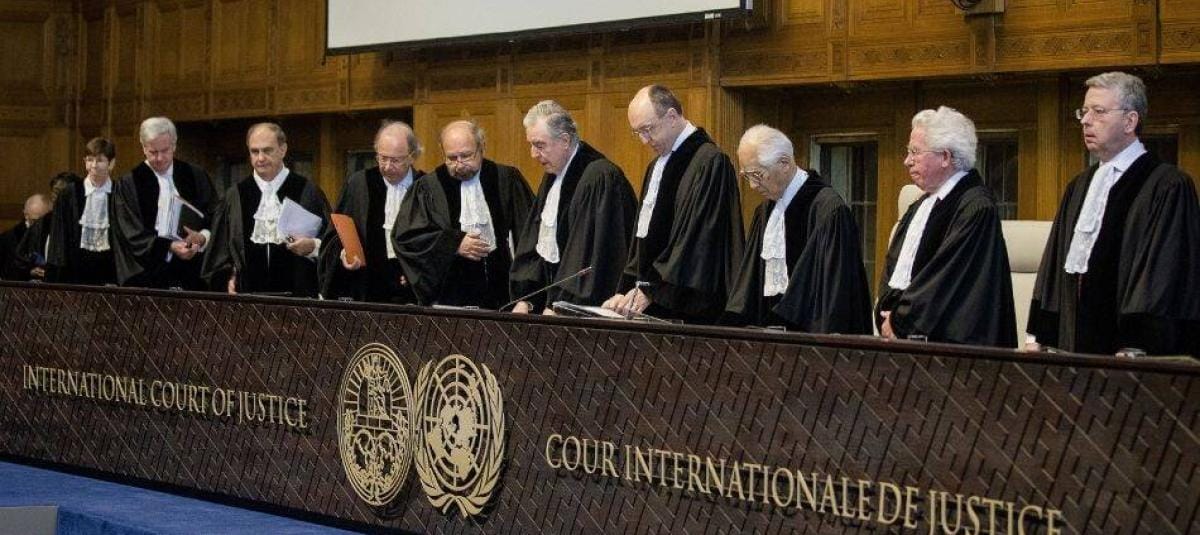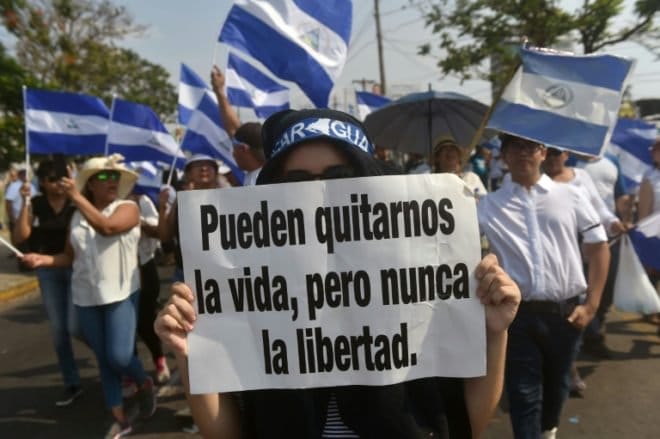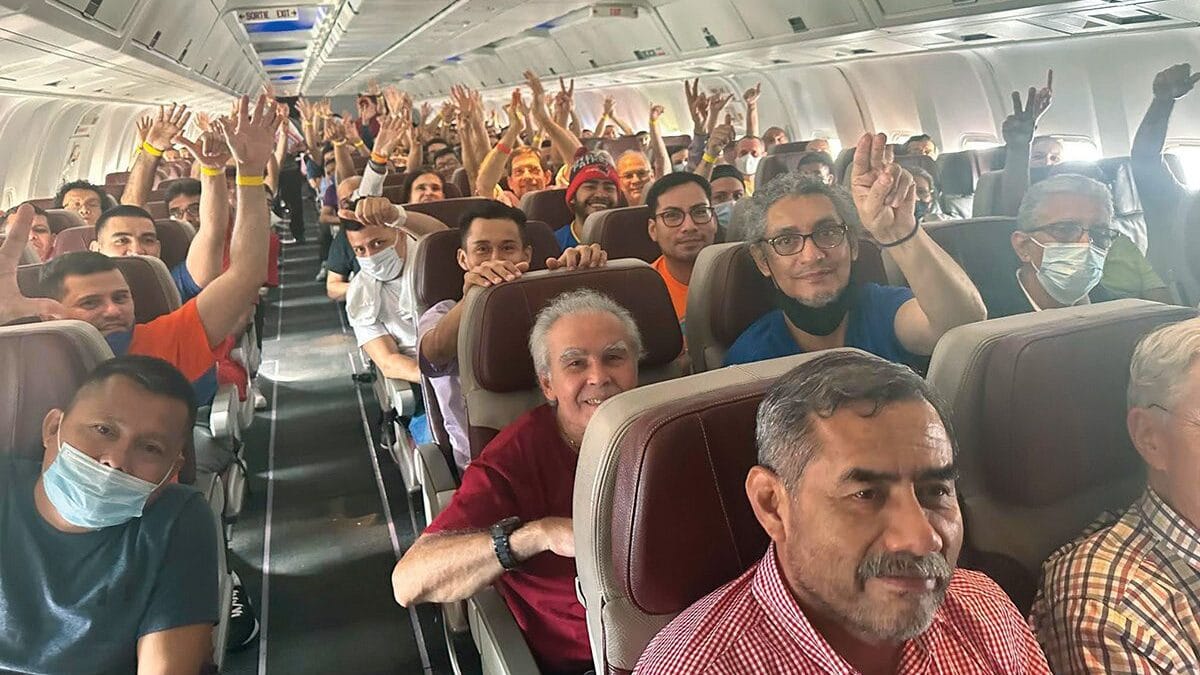The Governing Body of the International Labor Organization (ILO) in the framework of its 353rd session, held in Geneva from March 10th to 20th, established a Commission of Inquiry, which will examine the allegations of the complaint filed in 2023 against the Government of Nicaragua, accused of non-compliance with Conventions 87, 98, 111 and 144 of the organization.
This is great news especially because of the place where it originates, since the ILO is the only agency of the United Nations Organization (UN) that brings together governments, employers and workers. It is the home of tripartism and there the dictatorship can no longer deceive anyone. The decision was supported by the governments, the International Organization of Employers (IOE) and the workers, so it is not surprising that the Ortega Murillo regime decided to abandon it.
The Commission of Inquiry is the ILO’s highest level investigative procedure and is generally initiated when a member state is accused of committing serious and persistent violations and repeatedly refuses to address them.
During its more than 100 years of existence it has only established 14 Commissions of Inquiry and Nicaragua is the first country to have this happen two times. It is also no coincidence that it is the same government that continues to leave a mark on the dark pages of ILO history.

The first complaint
In June 1987, IOE delegates filed a complaint against the revolutionary government presided by Daniel Ortega, which since 1981 had been violating Conventions 87, 98 and 144. In November 1989, the Board of Directors created a Commission of Inquiry to follow up on the case, but the following year, the electoral victory of Mrs. Violeta Barrios de Chamorro over Ortega reversed the process.
Now, since 2022, the IOE has once again denounced the violations committed and in 2023 they filed a complaint that continues its path in the Committee of Experts on the Application of Conventions and Recommendations and in the Conference Committee on the Application of Standards. Both submitted their analyses to the Governing Body.
The complaint is for non-compliance with Conventions 87 of 1948, on Freedom of Association and Protection of the Right to Organize. Convention 98 of 1949, on the Right to Organize and Collective Bargaining. Convention 111 of 1958, on Discrimination (Employment and Occupation) and convention 144 of 1977, on Tripartite Consultation (International Labor Standards). Ironically, Nicaragua ratified Convention 111 in 1981 and it entered into force in 1982 during the Ortega government, which today violates it.
Some of the issues included in the complaint are the persistent climate of intimidation and harassment of independent workers’ and employers’ organizations, the imprisonment and banishment of business leaders; the closure of business organizations, the climate of violence, insecurity and intimidation that encourages acts of discrimination in employment based on political opinion, and note was taken of arbitrary detentions and continued reports of human rights violations and abuses, including gender discrimination.

Case may go to the ICJ
Nicaragua is currently the only country among the 187 members of the ILO that does not have employer representation. In the last conferences, in order to show respect for tripartism, it brought an association of Sandinista businessmen created to supplant the Superior Council of Private Enterprise (Cosep) and another related organization, but the maneuver did not work. Then, in the midst of the massive cancellation of the legal status of independent business organizations, it also annulled the legal status of their sympathizers.
During the last three years the Governing Body of the ILO made a series of recommendations to which the Ortega Murillo regime neither responded nor implemented. Although it recently announced its withdrawal, the organization made it clear that it continues to be linked through the Conventions it has ratified and the obligations that derive from them. In addition, when a member country denounces the organization, it is subject to all obligations for two years.
We in the Nicaraguan Democratic Concertation (CDN), consider that the establishment of the Commission of Inquiry is a transcendental decision that adds to other initiatives promoted by the International Community to stop the abuses of the Ortega Murillo family, among them, the Section 301 Investigation of the US Department of Commerce, the recommendations of the Group of Human Rights Experts on Nicaragua (GHREN), the resolution of the European Parliament and the approach of the crisis in the UN Human Rights Council.
It is important to note that the recommendations generated by the Commission of Inquiry will be presented to Nicaragua and if it does not accept them, the way will be open to take the case to the International Court of Justice (ICJ).
Ortega’s Nicaragua without freedoms

In January 2007, Daniel Ortega returned to power after a sixteen-year break in which he claims to have “governed from below” while leading the opposition. Now, after eighteen uninterrupted years in power, according to specialized organizations, including Freedom House, Ortega has turned Nicaragua into a country without freedom.
Although the democratic deterioration began when Ortega regained power, the socio-political crisis of 2018 accelerated it to the point of consolidating a dynastic dictatorship that turned the powers of the State into entities under his control and eliminated any vestige of the checks and balances that characterize democracies.
The deterioration was so sharp that in 2017, prior to the onset of the crisis still facing the country, Freedom House’s annual report gave him in Civil Liberties a rating of 47 points on a scale of 100.
Although it questioned that in the 2016 electoral process, Ortega took his main contender, the Independent Liberal Party (PLI) out of the game to guarantee his second reelection for a third term and the election of his wife Rosario Murillo as vice president; and then stripped 16 opposition deputies of their seats, in Political Rights it gave him 14 points out of a possible rating of 40.
While in Civil Liberties it gave him 33 points on a scale of 60, since freedom of expression and association continued to deteriorate, especially because some environmentalists and researchers who opposed the Interoceanic Canal project were arrested and others expelled from the country.

Partial Freedoms used to exist
Those ratings placed Nicaragua among the countries with Partial Freedoms, but seven years later, the deterioration is dramatic. In its Freedom in the World 2025 report, the organization gave Civil Liberties a rating of 14 on a scale of 100, which consolidates it in the group of countries with No Freedoms, to which it dropped in 2019.
In addition, in Political Rights it only gave it 2 points out of 40 and in Civil Liberties 12 points on a scale of 60.
The democratic deterioration that began in 2007 worsened as of 2018. State forces, with the help of armed groups, repressed anti-government protests. The murders, extrajudicial detentions, forced disappearances and torture they committed collapsed the rule of law.
Moreover, as other international bodies, such as the UN Group of Human Rights Experts on Nicaragua (GHREN), assert, the Ortega-Murillo regime has consolidated its power through surveillance, restriction of press freedom, arrest, exile and denationalization of those who oppose it.
Freedom House attributes the deterioration of political rights to the fact that Ortega, Murillo, the deputies and other elected officials were not elected in free and fair electoral processes. The electoral legal framework is not fair and the governing body does not apply it impartially, and citizens are not allowed to organize themselves to participate in the elections.
According to Freedom House among the most serious violations of 2024 are, in August, the cancellation of some 1,500 Non-Profit Organizations; with them the organizations closed since 2018 exceeded 5,200.

Legalized repression
In that same month, he expelled 7 priests to the Vatican and in September he added to the list of exiles 135 people who were imprisoned for political reasons. All of them were stripped of their nationality and became stateless.
Several laws were reformed in the National Assembly to legalize repression. The Penal Code was changed to legitimize the prosecution and confiscation of assets of organizations and individuals, inside or outside Nicaragua, who are accused of committing crimes against the State. The Special Law on Cyber Crimes was also amended, to extend its application to publications on social networks and even prosecute alleged cyber-crimes committed abroad.
In addition, in November they approved a total reform to the Constitution which they disguised as partial. The new Magna Carta came into force in February and according to the GHREN, it grants unlimited powers to Ortega and Murillo who now share control of the country under the figure of co-presidency. They add that this will cause “disastrous and transcendental” consequences for human rights because it eliminated respect for the dignity of the human person as a principle of the Nation.
For the Nicaraguan Democratic Concertation (CDN) it is extremely relevant that reports such as that of Freedom House show the true face of the dictatorship and the consequences that its actions cause to Nicaraguans and that they expose its lies and maintain, at the international level, the denunciation so necessary in the current circumstances.
